ISLAMABAD, May 25 (APP): Carrying forward his government’s vision of developing Pakistan into a strong economy, Prime Minister Muhammad Nawaz Sharif wooed Hong Kong’s top businessmen and corporate leaders to invest in Pakistan – a country emerging as a rising and secure country.
After attending two-day ‘Belt and Road Forum for International Cooperation’ hosted by Chinese government in Beijing on May 14-15, the prime minister arrived in Hong Kong on three-day visit where he interacted with top business leaders and government functionaries besides addressing a Pakistan Investment Forum.
During his interactions with Hong Kong’s political leadership and corporate heads, the key focus of the prime minister was to convince them to take advantage of Pakistan’s investment friendly policies particularly amid the execution of China-Pakistan Economic Corridor – a flagship project of OBOR.
He presented them a picture of a changed Pakistan that had been heading forward on the track of sustainable growth.
“Today I present to you a rising, confident and secure Pakistan – a country full of vigour to make its mark in the world.
Despite numerous challenges, Pakistan is becoming an emerging
economy and a destination that no global player can afford to miss,” the prime minister remarked addressing Pakistan Investment Forum
on ‘One Belt, One Road’ held by China Innovative Finance Group Limited and Consulate General of Pakistan.
Citing country’s strategic location, rich human and material
resources, political stability and liberal investment policy, he said Pakistan was an attractive destination for investors.
The audience was informed that net foreign direct investment had increased to US$1.901 billion during 2016 registering 30 percent growth since 2013.
Highlighting the contours of his government’s investment policy, he said there was no minimum requirement for the amount of foreign equity and the investors could repatriate 100 percent profits and dividends.
The prime minister, who also met with heads of Hong Kong’s top companies including ZTE Corporation, Chairman Shandong High-Speed Group and Chairman Beijing Enterprises Holdings Limited, said the consumer market in the country was growing at a very fast pace and consumer demand of automobiles, housing and electronics was thriving.
He said from three percent GDP growth before 2013, the country was projected to achieve 5.5 percent GDP growth this year, and 7 percent by next two years.
He told the select gathering of businessmen and policymakers that Pakistan’s Vision 2025 served as a comprehensive strategy for achieving sustainable growth and mapped the country to join the top 25 economies in the world leading to Upper Middle Income country status by 2025.
Terming China Pakistan Economic Corridor as key regional initiative for connectivity and shared prosperity of nations, the prime minister said it was a core component of One Belt, One Road initiative of Chinese President Xi Jinping.
He said CPEC had the potential of bringing improvement in the lives of people as it would connect Gwadar Port to Kashghar and would also link the resource-rich Central Asia, oil-rich Gulf states and Europe.
During his all interactions, he encouraged the businessmen from Hong Kong to take active part in CPEC which was in the mutual benefit of two nations.
Recounting the challenges inherited by his government, he said with efficient planning, the government managed to stabilize the economy despite unfavourable global economic conditions.
He mentioned that the government introduced good governance and financial discipline, entrepreneurship reforms, provided level-playing fields and widened social safety net, which resulted in reinforcement of foreign exchange reserves.
He said Hong Kong was among the major drivers of world economy and contributed for development of China, for which it could always be proud of.
At the Investment Forum, Chairman Board of Investment Miftah Ismail gave an overview of Pakistan’s economy with exports grown to worth $22 billion, imports of $40 billion and remittances worth $21 billion.
The Foreign Exchange Reserves had touched $23 billion mark and stock exchanges surged to 53,000 points and GDP grown to 4.7 percent.
Pakistan had a potential of 60,000 megawatt of hydel power, 340,000 MW of wind power, 184 million barrels of crude oil reserves, 26 trillion cubic feet of natural gas reserves, untapped reserves of 9 billion barrel of shale oil, 105 trillion cubic feet of shale gas and coal reserves of 175 billion ton.
Besides, Pakistan was fourth largest producer of cotton, 8th in wheat, 11th in rice, 5th in milk, and 9th in meat production.
At the investment forum, Chief Executive of Hong Kong Leung Chun-Ying expressed satisfaction that Pakistan’s support to the OBOR initiative was meant for peace, development and prosperity.
He said Pakistani community was one of the largest ethnic community in Hong Kong and was contributing to strengthening the business and trade linkages.
He said Hong Kong’s low taxation regime and a free judiciary was an attractive place for investment and emphasized that Pakistani businessmen to take the benefit.
Earlier, during his meeting with the chief executive, the prime minister stressed that the cooperation between the two countries in different sectors must be enhanced.
Prime Minister Sharif said several companies of Hong Kong had their permanent offices in Pakistan which testified their trust in the country.
He also met Chief Executive-elect of Hong Kong’s Special
Administrative Region Carrie Lam wherein both the sides discussed the potential of Pakistan and Hong Kong and tapping it to the maximum.
He mentioned that Hong Kong’s 35,000 Pakistani origin residents were making valuable contribution in all spheres of economic activities.
He also had separate meetings with Chairman ZTE Corporation Yin Yimin, Chairman Shandong High-Speed Group Sun Liang and Chairman Beijing Enterprises Holdings Limited Wang Dong focused on developing business linkages in the public-private sector of Pakistan and Hong Kong.
The prime minister apprised the company heads about Pakistan’s investment-friendly policies that offered incentives for foreign businessmen.




